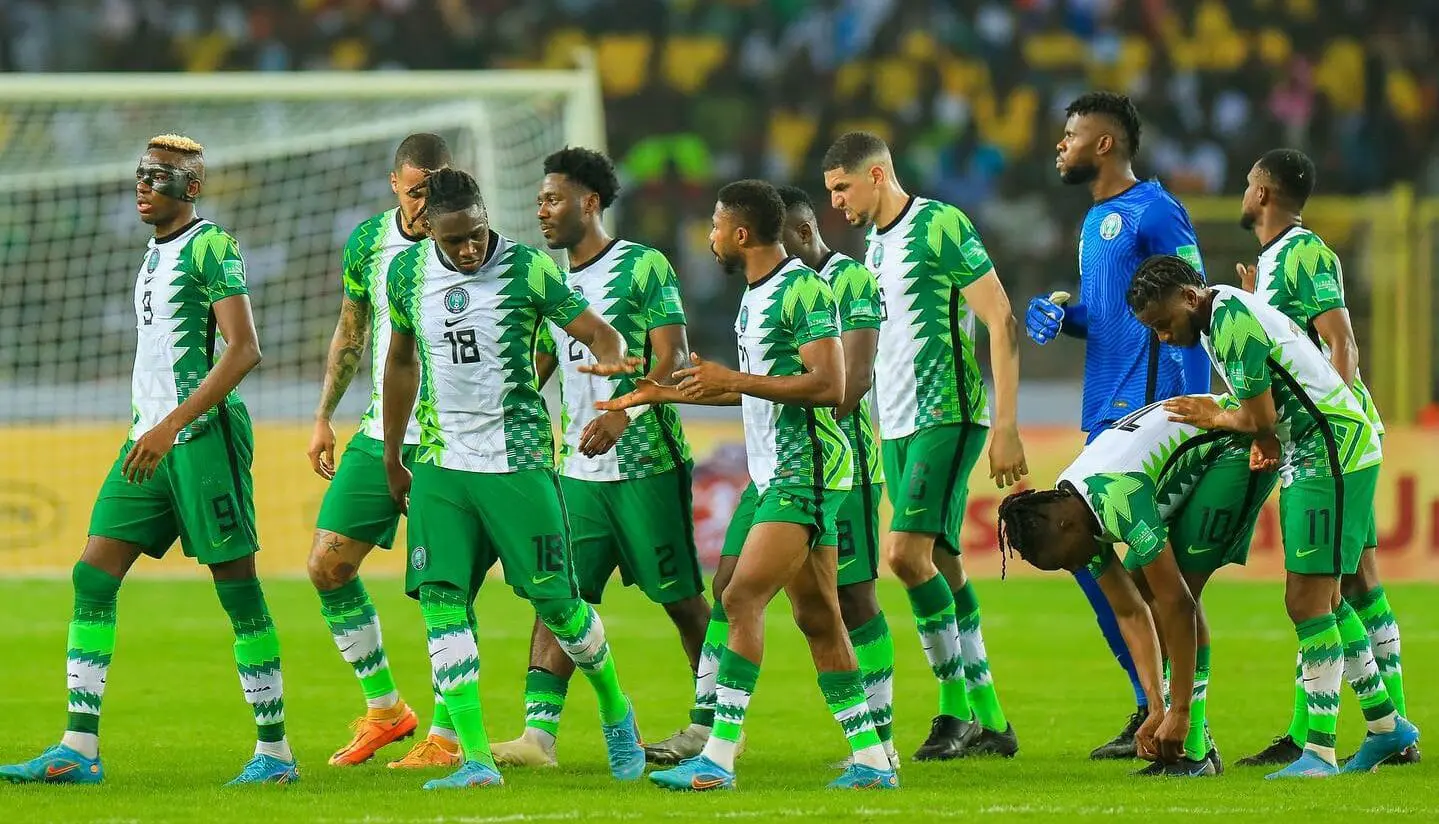The Super Eagles’ chances of qualifying for the 2026 FIFA World Cup are dwindling due to their current standing in Group C.
Cyber Reporters reports that the Super Eagles trail behind South Africa, the group leader with 17 points, and Benin Republic, which has 11 points with a game in hand.
To qualify directly, Nigeria would need to win both of their remaining matches and score heavily.
The Super Eagles need to score heavily to overcome South Africa’s significant goal difference, and hope South Africa loses both games.
Even with two wins, reaching 17 points would not guarantee a playoff spot, given the strong performance of other groups’ runners-up.
Given this scenario, many voices in Nigerian football are advocating for a shift in focus towards the 2030 World Cup.
A long-term strategy could involve investing in grassroots and youth development programs to identify and nurture young talent.
Establishing football academies and developing world-class facilities, including training pitches and accommodation, could also be beneficial.
Developing Nigerian coaches at all levels and scouting young players domestically and abroad could ensure a consistent football philosophy and smooth player transitions.
A balanced blend of experienced players and new talent will be crucial, particularly in defense, where current players will be nearing retirement age by 2030.
Cyber Reporters reports that emerging players like Victor Boniface and Benjamin Frederick show promise for the future.
By focusing on a structured and sustained approach to talent identification, development, and team building, Nigeria can work towards a successful campaign in the 2030 World Cup.
